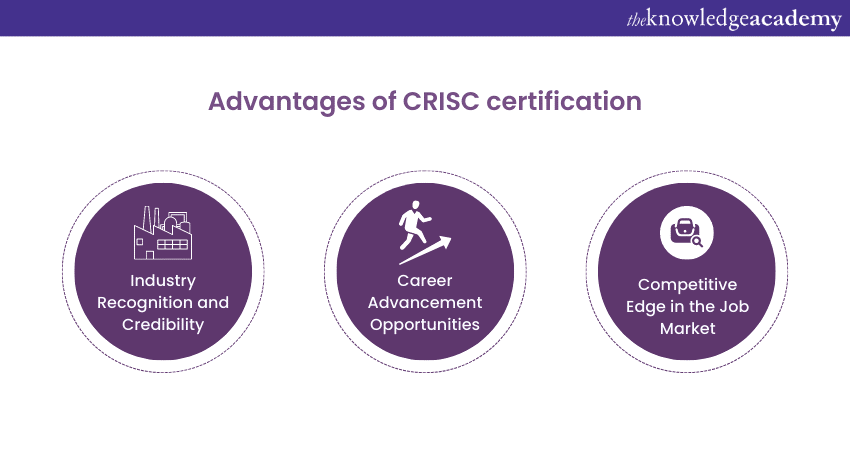We may not have the course you’re looking for. If you enquire or give us a call on +44 1344 203 999 and speak to our training experts, we may still be able to help with your training requirements.
Training Outcomes Within Your Budget!
We ensure quality, budget-alignment, and timely delivery by our expert instructors.

In a world where the threat of cyber-attacks is imminent, businesses are gearing up with professionals who are experts in risk management. The Certified in Risk and Information Systems Control (CRISC) certification is one of the most popular qualifications for risk management and information systems control. Although the certification's popularity remains unparalleled, most Information Technology (IT) aspirants are troubled with one question – Is CRISC Worth It?
Nowadays, organisations are heavily investing in CRISC-certified professionals to uphold the security of their businesses. According to Statista, one of the largest data breaches ever recorded was the Cam4 data breach, which lost 20 billion data records, and this shows the importance of good risk management. Is CRISC Certification Worth It? This blog delves into various aspects of the CRISC certification, its advantages, and its relevance in various industries.
Table of Contents
1) CRISC certification – A brief introduction
2) Advantages of CRISC certification
a) Industry recognition and credibility
b) Career advancement opportunities
c) Competitive edge in the job market
3) Industry Relevance and Prospects
4) Conclusion
Looking to crack the CRISC EXAM, refer to our blog on "CRISC Study Material"
CRISC certification – A brief introduction
CRISC certification is globally recognised and is used by professionals specialising in IT risk management and control monitoring. The Information Systems Audit and Control Association (ISACA) offers it.
By obtaining the certification, professionals demonstrate their proficiency in risk identification, assessment, and mitigation using information systems controls. They comprehensively understand risk management practices, frameworks, and methodologies.
This qualification enhances professional credibility, demonstrates a commitment to continuous learning and development, and signifies a level of expertise employers and clients value. It can open doors to new career opportunities, as it is recognised globally and respected within the industry.
Enhance your expertise in risk and information systems control with our CRISC Training courses now!
Advantages of CRISC certification

CRISC certification offers numerous advantages for professionals in the field of risk and information systems control. Let's explore some of the key benefits of CRISC:
Industry Recognition and Credibility
CRISC is a globally recognised and respected accreditation by employers, clients, and industry experts. It validates your expertise and demonstrates high-risk management and control monitoring competence. It enhances your professional credibility and distinguishes you as a knowledgeable and skilled practitioner.
Career Advancement Opportunities
The certification can significantly enhance your career prospects. By obtaining it, you position yourself as a qualified candidate for IT risk manager, information security manager, compliance analyst, and more roles.
Competitive Edge in the Job Market
The certification sets you apart from other candidates in a highly competitive job market. Employers often prioritise candidates with recognised qualifications when making hiring decisions. It showcases your commitment to professional development and continuous learning, making you a more attractive candidate for existing and emerging job opportunities.

Industry Relevance and Prospects
The CRISC qualification is relevant across various industries as organisations increasingly recognise the importance of effective risk management and information systems control. Let's explore the industry relevance and prospects of CRISC certification:
a) Finance and Banking: The finance industry deals with sensitive customer data, financial transactions, and regulatory compliance. CRISC-certified professionals play a crucial role in identifying and mitigating risks associated with financial systems, ensuring data integrity, and complying with industry regulations. As the finance industry faces evolving cybersecurity threats, their demand is expected to remain strong.
b) Healthcare: In the healthcare sector, protecting patient data, maintaining confidentiality, and complying with privacy regulations is paramount. CRISC certification equips professionals with the necessary skills to manage information security risks, implement safeguards, and ensure the continuity of critical healthcare systems. With the growing adoption of electronic health records and telemedicine, the need for CRISC-certified experts is expected to rise.
c) Technology and IT Services: The rapid pace of technological advancements and the proliferation of digital transformation initiatives have increased the need for robust risk management practices. CRISC-certified professionals bring expertise in identifying, assessing, and managing IT-related risks.
Looking to crack your CRISC exams, refer to our blog on "CRISC Exam Questions"
Conclusion
Looking to the future, the prospects for CRISC-certified professionals remain promising. Risk management will remain a top priority as technology advances, ensuring that the demand for the certification persists. We hope this blog has helped answer your questions like ‘Is CRISC Worth It?’ and learn more about the pros of acquiring the accreditation.
Improve your career journey by signing up for our Certified In Risk And Information Systems Control (CRISC) course now!
Upcoming IT Security & Data Protection Resources Batches & Dates
Date
 Certified in Risk and Information Systems Control (CRISC)
Certified in Risk and Information Systems Control (CRISC)
Mon 27th Jan 2025
Mon 7th Apr 2025
Mon 14th Jul 2025
Mon 24th Nov 2025







 Top Rated Course
Top Rated Course


 If you wish to make any changes to your course, please
If you wish to make any changes to your course, please


